
Mantenere un blog che parla di traduzione diventa difficile quando si comincia a leggere e a vedere tutto in lingua originale... Comincia a scarseggiare il materiale su cui scrivere.
Siccome però i miei lettori sono divenuti irrequieti ed il postino ha dovuto comprarsi un furgoncino per portarmi tutte le lettere di protesta che ricevo per i mancati aggiornamenti ho deciso di scrivere qualcosa di nuovo.

Recentemente ho parlato con parecchie persone che come me, hanno bisogno di imparare l’inglese, soprattutto molti che devono uscire dal “bozzolo” dell’inglese scolastico e farlo diventare qualcosa di più che una serie di regole incasinatissime che, alla fine, sono quasi di ostacolo quando uno deve imbastire un discorso. Molte di queste persone, specialmente ragazzi giovani, sono stranamente spaventati dal materiale in lingua originale e quindi vorrei qui dare un piccolo contributo a fare quel salto, in particolare per quanto riguarda la lettura. Nel mondo del cinema mi avventurerò in un secondo momento.
Rationale
Rationale:the reasons that cause a particular set of actions

Prima di tutto, come sempre, uno sguardo alle motivazioni per cui leggere libri in lingua originale (in questo caso, l’inglese). L’ordine delle motivazioni è casuale, ognuno le ponga nella sequenza che preferisce.
- Fretta. Chiunque inizi a vedere film in lingua originale si scontra con un problema molto grosso: l’azione prosegue sia che noi capiamo o meno. I personaggi continuano a parlare e ad agire indipendentemente dalla nostra comprensione, e tornare indietro è spesso noioso perché è “contro” la natura del media stesso. Come dirò successivamente questo è uno dei punti di forza di un film, ma va usato con criterio. Un libro, invece, non ha fretta. Il paragrafo che stai leggendo non scappa, ti basta un movimento dell’occhio per tornare indietro e, finché non hai capito, nessuno procede.
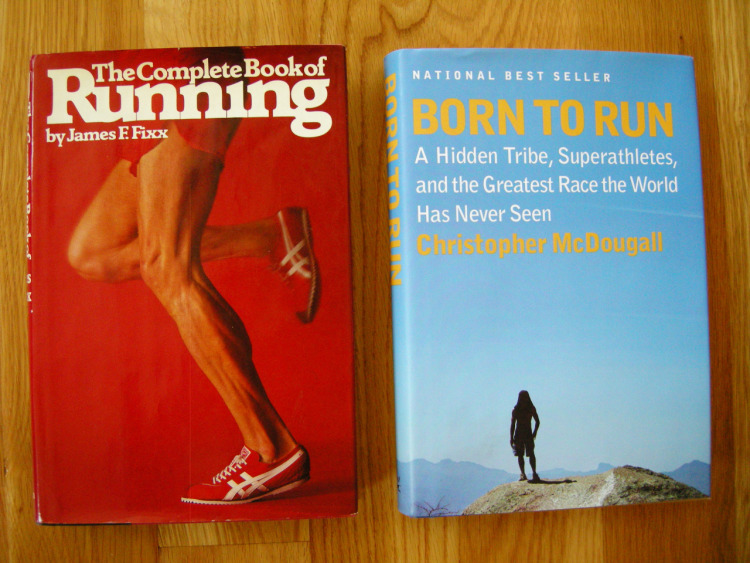
- Contesto! In un libro ci sono moltissime parole, molte di più di quante ne vorremmo vedere in una sessione di studio. Hanno però un grande vantaggio, queste parole, del libro: hanno un contesto. Come vedete, il titolo di questo punto è (volutamente) ambiguo, e forse leggendo avete pensato che ci fosse una contestazione in atto. Questo è il problema dello studio delle parole isolate da un contesto. Uno impara tante parole ma non le sa mettere nel discorso, e, quando parla, finisce sempre per tradursi dall’italiano all’inglese. Il libro invece presenta forme ben scritte (ovviamente supponendo di leggere un autore che sa scrivere decentemente, ma lasciamo da parte i problemi di stile per ora). Leggendo si impara secondo il metodo più naturale, cioè imparando la parola e capendo dal contesto cosa significa. Un bambino impara la parola “mamma” perché tutte le volte che compare quella persona la gente dice “mamma” e quindi, il gioco è fatto. Questo avviene anche nel leggere in originale: molte parole restano sconosciute, ma abbiamo la possibilità di capirne il significato senza ricorrere al vocabolario (che comunque c’è, per i casi più difficili). Capendo una parola in un contesto, però la si impara in modo differente, la si è già fatta propria. E questo emerge poi quando, parlando, abbiamo bisogno di ricorrere a quel concetto (perché noi pensiamo ai concetti, non alle parole!).
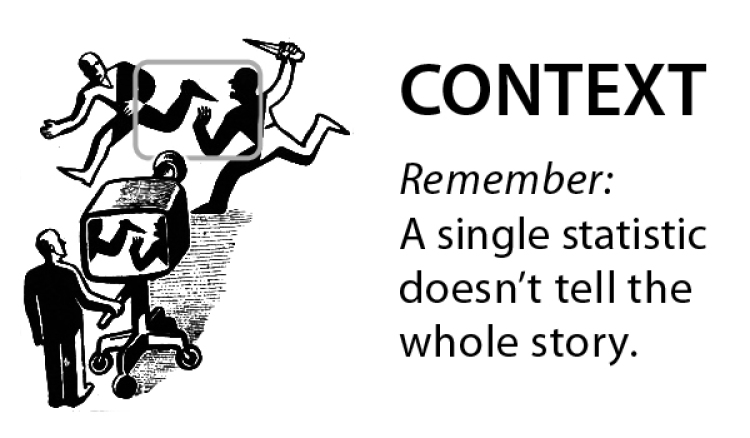
- Significato. La traduzione, ovviamente, filtra. Filtra e spesso (se non sempre) impoverisce, per forza di cose. Nessuna lingua può essere tradotta senza perdere qualcosa, perché la lingua è l’espressione massima della storia e della mentalità di un popolo. Leggere in originale fa apprezzare tutta una serie di significati e di sfumature che possono (e talvolta devono) venir persi nella traduzione, lasciando da parte i (purtroppo molti) casi in cui il traduttore ci consegna un lavoro di livello pessimo, per cui ci sono evidenti omissioni o errori. Il titolo di questo articolo si ispira volutamente a “The Call of the Wild” di Jack London, romanzo che chiunque in Italia conosce con il titolo di “Il richiamo della foresta”. Ma “wild” non è proprio la foresta, è tutto ciò che è indipendente dagli uomini, siano piante o animali. Per questo il richiamo del titolo non è solamente ad un luogo (la foresta) ma allo “stato selvaggio” o naturale. Questo semplice esempio mostra come la traduzione (peraltro non sbagliata) faccia perdere qualcosa: già dal titolo!

Learn by doing
Learn by doing: doing an activity you learn how that activity works
Siccome l’ostacolo ad iniziare è la percezione di avere davanti una montagna che non si può scalare vorrei qui condividere alcuni suggerimenti che vengono dalla mia esperienza di lettura sotto forma di “collinette” facilmente superabili. Vorrei infatti riportare alcuni paragrafi di opere che ritengo accessibili a chi non abbia mai letto in originale, di modo che leggendoli vi rendiate conto che... sì! potete leggere i romanzi in inglese.
Ovviamente la mia piccola antologia pescherà nei due generi a me più cari, il fantasy e la fantascienza. Sono questi infatti i generi che mi hanno spinto ad andare a cercare i libri in lingua originale. Qui li riporto come consigli di lettura effettivi, ma più di tutto vale il fatto che, se riuscite a leggere questi paragrafi, riuscite a leggere il libro intero! Ognuno poi è libero di cercare gli autori che preferisce.
Difficulty level
Va da sé che, come in ogni lingua, ci sono autori più facili e autori più difficili, autori con un lessico ed una prosa molto scorrevoli, ed altri che risultano difficili ai madrelingua. Senza andare a scomodare autori dei secoli passati (che quindi sono difficili anche perché scrivono in una lingua parzialmente differente e con una mentalità diversa dalla nostra), questa distinzione va fatta anche per gli autori contemporanei. Consiglio fortemente, prima di lanciarsi a leggere il proprio autore preferito, di verificare come questa persona scriva, e se questo sia compatibile con il nostro livello di inglese. La lettura deve essere un relax e una gioia, quindi se lo stile impedisce di godere del romanzo questo sarà di ostacolo anche al nostro studio.
Tra parentesi, accanto al titolo delle sezioni, assegnerò un grado di difficoltà così come è parso a me. Ovviamente questo dipende molto non solo dalle conoscenze personali della lingua (ma le mie non sono elevatissime) e da altri fattori (se si è già letta o meno la traduzione italiana, ad esempio). Prendete questi numeri come indicazioni di massima, quindi. Vanno da 1 (accessibile come prima lettura) a 3 (da leggersi dopo un po’ di pratica).

Johanne K. Rowling - Harry potter Saga [1]
Non sono un particolare fan della saga scritta dalla signora Rowling, per vari motivi che non starò a dettagliare qui. Riconosco comunque ai romanzi di Harry Potter l’importanza che hanno avuto nel panorama letterario giovanile e anche una buona consistenza (imbastire una storia che rimane coerente per 7 romanzi non è impresa da poco). Ma in questo momento mi interessano i romanzi di Harry Potter specialmente per il fatto di essere scritti in un inglese accessibile, essendo stati pensati per ragazzi. Vediamo un po’ cosa posso pescare dal calderone... ecco qui:
Harry Potter was a highly unusual boy in many ways. For one thing, he hated the summer holidays more than any other time of year. For another, he really wanted to do his homework, but was forced to do it in secret, in the dead of night. And he also happened to be a wizard.
It was nearly midnight, and he was lying on his front in bed, the blankets drawn right over his head like a tent, a torch in one hand and a large leather-bound book (A History of Magic, by Adalbert Waffling) propped open against the pillow. Harry moved the tip of his eagle-feather quill down the page, frowning as he looked for something that would help him write his essay, ‘Witch-Burning in the Fourteenth Century Was Completely Pointless – discuss’.
Harry Potter and the Prisoner of Azkaban
Questo l’incipit di “Harry Potter and the Prisoner of Azkaban”. terzo libro della sopracitata saga. Bene, se leggendo il paragrafo precedente avete capito solamente “Harry Potter” probabilmente vi conviene prendere in mano un corso di inglese di base. Nulla di cui vergognarsi, ovviamente! Se invece avete più o meno capito cosa dice il paragrafo, benvenuti nel mondo dei romanzi in lingua originale! Cosa aspettate? Compratevi il primo libro della saga e leggetelo.
Una piccola nota a chi si accinga a leggere questi romanzi. Nel primo romanzo c’è solamente una difficoltà reale nella lettura, e questa va sotto il nome di Hagrid. Questo personaggio, infatti, parla un dialetto un po’ difficile da capire per chi sia un po’ a diguino di inglese. In effetti la frase “You are a wizard, Harry!” non viene pronunciata così nel libro. Hagrid dice infatti “Harry - yer a wizard.”. “Yer” qui è la contrazione di “You are”, già normalmente ridotto a “You’re”. Quindi non vi spaventate se non capite tutto quello che dice Hagrid, molto si intuisce dal contesto e il resto... pazienza!
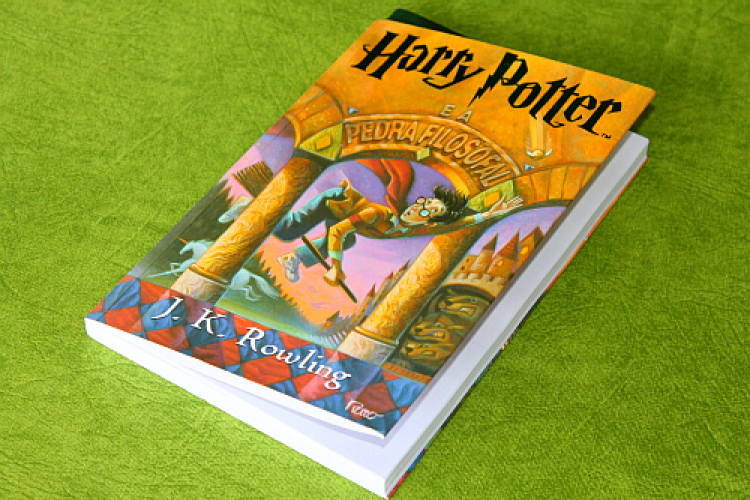
Margaret Weis & Tracy Hickman - Dragonlance Chronicles [1]
Volendo fare un salto più marcato nel fantasy classico consiglio di leggere la trilogia de “Le Cronache di Dragonlance” di Margaret Weis e Tracy Hickman. I tre romanzi “Dragons of Autumn Twilight“, “Dragons of Winter Night“ e “Dragons of Spring Dawning“ sono molto scorrevoli e scritti in un inglese non complesso, anche se il vocabolario è sicuramente più esteso (almeno per quanto riguarda la mia percezione) di quello della Rowling.
Tika Waylan straightened her back with a sigh, flexing her shoulders to ease her cramped muscles. She tossed the soapy bar rag into the water pail and glanced around the empty room. It was getting harder to keep up the old inn. There was a lot of love rubbed into the warm finish of the wood, but even love and tallow couldn’t hide the cracks and splits in the well-used tables or prevent a customer from sitting on an occasional splinter. The Inn of the Last Home was not fancy, not like some she’d heard about in Haven. It was comfortable. The living tree in which it was built wrapped its ancient arms around it lovingly, while the walls and fixtures were crafted around the boughs of the tree with such care as to make it impossible to tell where nature’s work left off and man’s began. The bar seemed to ebb and flow like a polished wave around the living wood that supported it. The stained glass in the window panes cast welcoming flashes of vibrant color across the room.
Dragons of the Autumn Twilight
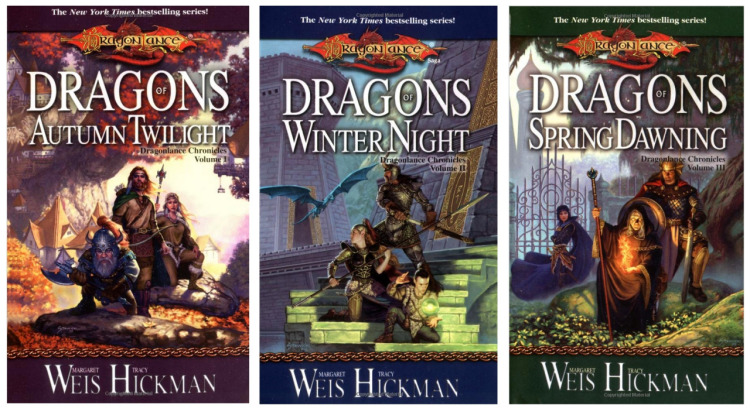
David Eddings - The Belgariad [2]
David Eddings con la pentalogia “The Belgariad” ci consegna un piccolo gioiello. Sicuramente non per l’originalità della trama, né per il realismo con cui descrive i personaggi (non può esserci un esempio migliore di personaggi stereotipizzati). Però... che dialoghi! Che dialoghi! I suoi personaggi sono di una simpatia incredibile, frizzanti, sempre pronti ad una scaramuccia verbale tra loro. E leggere Eddings è un piacere proprio per questo, sia in italiano che, ovviamente, in originale.
“Have we been captured by robbers?” Garion asked in a quavering voice.
“Robbers?” Wolf laughed. “What a wild imagination you have, boy. These two are our friends.”
“Friends?” Garion asked doubtfully, looking suspiciously at the redbearded giant and the weasel-faced man beside him. “Are you sure?” The giant laughed then too, his voice rumbling like an earthquake.
“The boy seems mistrustful,” he boomed. “Your face must have warned him, friend Silk.” The smaller man looked sourly at his burly companion.
“This is Garion,” Wolf said, pointing at the boy. “You already know Mistress Pol.” His voice seemed to stress Aunt Pol’s name. “And this is Durnik, a brave smith who has decided to accompany us.” “Mistress Pol?” the smaller man said, laughing suddenly for no apparent reason.
“I am known so,” Aunt Pol said pointedly.
“It shall be my pleasure to call you so then, great lady,” the small man said with a mocking bow.
“Our large friend here is Barak,” Wolf went on. “He’s useful to have around when there’s trouble. As you can see, he’s not a Sendar, but a Cherek from Val Alorn.”
Garion had never seen a Cherek before, and the fearful tales of their prowess in battle became suddenly quite believable in the presence of the towering Barak.
“And I,” the small man said with one hand to his chest, “am called Silk - not much of a name, I’ll admit, but one which suits me - and I am from Boktor in Drasnia. I am a juggler and an acrobat.”
“And also a thief and a spy,” Barak rumbled good-naturedly.
“We all have our faults,” Silk admitted blandly, scratching at his scraggly whiskers.
“And I’m called Mister Wolf in this particular time and place,” the old man said. “I’m rather fond of the name, since the boy there gave it to me.”
Pawn of Prophecy

Timoty Zahn - The Thrawn Trilogy [1]
Che dire, se siete fan di Guerre Stellari e non avete mai letto i tre romanzi “Heir to the Empire“, “Dark Force Rising“ e “The Last Command“ di Timoty Zahn... correte al riparo immediatamente! Lasciando da parte momentaneamente le considerazioni da appassionato, dal punto di vista linguistico i romanzi sono molto accessibili, Zahn è uno che “ricicla” spesso alcune espressioni o parole, quindi si legge facilmente. L’ambientazione “eroistica” di Star Wars lascia poco spazio a lunghe analisi psicologiche o a descrizioni complesse dell’ambiente, rendendo i romanzi molto scorrevoli.
“Luke?”
The voice came softly but insistently. Pausing amid the familiar landscape of Tatooine-familiar, yet oddly distorted-Luke Skywalker turned to look.
An equally familiar figure stood there watching him. “Hello, Ben,” Luke said, his voice sounding sluggish in his ears. “Been a long time.”
“It has indeed,” Obi-wan Kenobi said gravely. “And I’m afraid that it will be longer still until the next time. I’ve come to say goodbye, Luke.”
The landscape seemed to tremble; and abruptly, a small part of Luke’s mind remembered that he was asleep. Asleep in his suite in the Imperial Palace, and dreaming of Ben Kenobi.
“No, I’m not a dream,” Ben assured him, answering Luke’s unspoken thought. “But the distances separating us have become too great for me to appear to you in any other way. Now, even this last path is being closed to me.”
“No,” Luke heard himself say. “You can’t leave us, Ben. We need you.”
Heir to the Empire

Brandon Sanderson - The Mistborn Trilogy (2)
I tre romanzi “Mistborn: the Final Empire”, “The Well of Ascension” e “The Hero of Ages” di Brandon Sanderson sono una lettura molto interessante. Le scene di azione descritte da Sanderson possono essere un po’ complesse ad una prima lettura, e l’abbondanza di termini “inusuali” fa di questa saga una lettura che non consiglierei come l’ideale per iniziare ad approcciare la lingua originale. Non li reputo però neppure particolarmente complessi, quindi dopo tre o quattro letture più semplici si possono tranquillamente prendere in considerazione.
Kelsier burned tin.
It was simple for him now, after years of practice. The tin sat with other Allomantic metals within his stomach, swallowed earlier, waiting for him to draw upon them. He reached inside with his mind and touched the tin, tapping powers he still barely understood. The tin flared to life within him, burning his stomach like the sensation of a hot drink swallowed too quickly.
Allomantic power surged through his body, enhancing his senses. The room around him became crisp, the dull firepit flaring to near blinding brightness. He could feel the grain in the wood of the stool beneath him. He could still taste the remnants of the loaf of bread he’d snacked on earlier. Most importantly, he could hear the screams with supernatural ears. Two separate people were yelling. One was an older woman, the other a younger woman—perhaps a child. The younger screams were getting farther and farther away.
“Poor Jess,” a nearby woman said, her voice booming in Kelsier’s enhanced ears. “That child of hers was a curse. It’s better for skaa not to have pretty daughters.”
Tepper nodded. “Lord Tresting was sure to send for the girl sooner or later. We all knew it. Jess knew it.” “Still a shame, though,” another man said.
Mistborn: the Final Empire

John Ronald Reuel Tolkien - The Lord of the Rings (3)
Beh, questo è il romanzo con cui ho iniziato a leggere in inglese... e me ne sono pentito ben presto. TLotR è complesso, e sinceramente lo sconsiglio per una prima lettura. Molti appassionati (io tra questi) lo conoscono quasi a memoria o comunque molto bene, e questo li può sicuramente aiutare. Li aspetto al varco dei capitoli iniziali del viaggio, quando Tolkien si mette a citare tutte le piante che gli Hobbit trovano lungo la via. Io, al tempo, ho resistito, ma non posso dire di essermi goduto la lettura. Tolkien è un filologo, maestro con le parole, e quindi non ci risparmia (né vogliamo che lo faccia) una grande maestria nello scrivere, cambi di registro (Aragorn e Grampasso parlano differentemente pur essendo la stessa persona, gli Hobbit si esprimono come contadini, Elrond parla una lingua elevata) e quant’altro concerne parole ed etimologie. Raccomandato assolutamente, ma per chi già abbia masticato un po’ di romanzi. Piuttosto raccomando per una lettura più semplice “Lo Hobbit”.
Frodo did not like the sound of this. ‘Come on!’ he cried. ‘We can’t have a nap yet. We must get clear of the Forest first.’ But the others were too far gone to care. Beside them Sam stood yawning and blinking stupidly.
Suddenly Frodo himself felt sleep overwhelming him. His head swam. There now seemed hardly a sound in the air. The flies had stopped buzzing. Only a gentle noise on the edge of hearing, a soft fluttering as of a song half whispered, seemed to stir in the boughs above. He lifted his heavy eyes and saw leaning over him a huge willow-tree, old and hoary. Enormous it looked, its sprawling branches going up like reaching arms with many long-fingered hands, its knotted and twisted trunk gaping in wide fissures that creaked faintly as the boughs moved. The leaves fluttering against the bright sky dazzled him, and he toppled over, lying where he fell upon the grass.
The Lord of the Rings - The Fellowship of the Ring
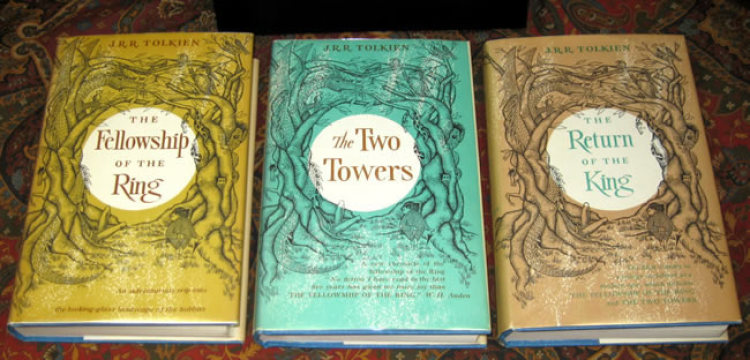
Final words
Ovviamente queste sono solo alcune idee per chi volesse leggere del fantasy o della fantascienza in inglese. Non essendo questa una classifica di autori, né un’analisi della letteratura di genere disponibile al momento ho tralasciato molti che varrebbe la pena di leggere.
Volevo solamente permettere a chi ha avuto la pazienza di arrivare fino a qui di leggere un pezzo di un romanzo in ligua originale e, magari, di rendersi conto che sta capendo quello che legge e che quindi può veramente affrontare la lettura di tutto il romanzo.
Buona avventura!


